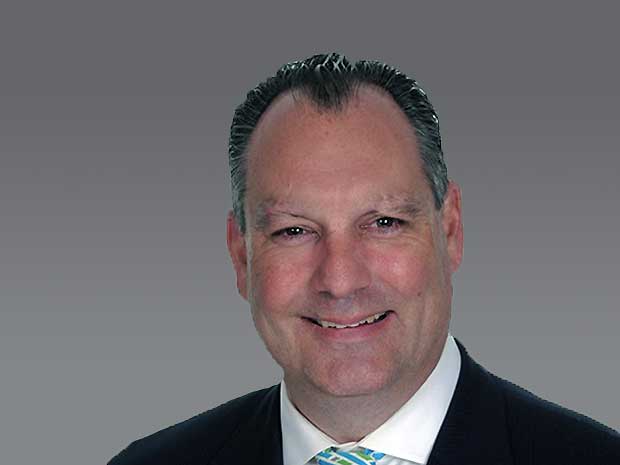Turbulence in the digital assets marketplace is prompting firms to examine institutional controls
Key takeaways
Third-party valuations of Level 2 and Level 3 investments necessitate robust protocols
Digital transformation creates opportunities for gaps and stronger internal controls
Asset management firms are contending with the audit and accounting implications of industry issues involving digital assets, investor demand, regulation, and digital transformation. They are evaluating their financial reporting processes—including the valuation of Level 2 and Level 3 assets, institutional controls, and operational methods to support accurate and efficient reporting.
“Change always creates a good opportunity for folks to take a fresh look at things,” says Ryan Hurley, RSM national director of asset management. “As new regulations come out, as new technology comes out, as new systems are implemented, it's just a great opportunity for companies to continue to evolve their overall frame of control and financial reporting. It really benefits us as auditors and ultimately helps their investors’ reliance on the information they're getting.”
Hurley joined Jon Waterman, RSM’s national asset management practice leader, and Mike Lundberg, RSM’s industry audit policy leader, for an 11-minute discussion about the latest business issues and accounting implications for asset management firms. They covered the following topics, with the corresponding time stamp noted for your convenience:
- Trends in the asset management industry, including digital assets, investor demand for illiquid products, and government regulation (1:28)
- Valuation challenges associated with Level 2 and Level 3 investments (3:46)
- Diligence and institutional controls for working with a third party (4:59)
- Controls for technology that integrates new systems into existing general ledger or enterprise risk management (ERM) reporting (7:52)
Mike Lundberg: John, in your role as our asset management industry leader, can you talk a little bit about some of the new or emerging trends that you're seeing within your client base?
Jon Waterman: Really good question because there has been a lot of change as we continue to see it evolve. I would say first and foremost, if you haven't seen or been aware of digital assets, that's probably the biggest thing that we're seeing this asset class really be interested in probably the last 10 years. And it's really grown, obviously, with the ups and downs with the market.
The second thing that I think we see quite a bit is the investor demand for illiquid products—such as private equity investments and venture capital—in a registered model. So obviously folks have had access to private equity, venture capital through private funds, but they really want that ability to invest through a registered model. And we can talk a little bit more about that, but we’re seeing a big trend on that.
And then lastly, we're seeing a big uptick in the regulatory landscape, rulemaking. The SEC, other regulators have been really active as to different rules proposed, and how those get approved and implemented by the client base is something to keep an eye on.
Ryan Hurley: John, you make a great point there. With a lot of the changes that we're seeing with either new asset classes or new regulations coming out, I think a lot of our clients are really struggling with how to advance their processes, their methods about how they go about their daily business as they encounter these new and unique challenges that are posed. And especially with the regulatory environment, I would say, having a little bit of an uptick in the amount of rulemaking that we're seeing the SEC come out with it, it’s really creating a lot of changes for our clients.
Just for example, if we look at, say, digital assets—and I think we're all aware of some of the unique challenges within that space, whether it's the decline and fall of some of the exchanges or the platforms that were out there that happened in the late part of '22. A lot of our clients are challenged with when something like that happens, what does that mean for their existing providers? What are some of the unique controls they might need to have within the institution or within the client to be nimble and be mindful of all the things that are happening and making sure that they're gathering appropriate evidence and records for their financial reporting purposes?
JW: Yeah, Ryan, it's interesting. As we've seen the auditing of financial services and specifically asset management evolve, I would say the auditors themselves have had to really be great practitioners in not only how do you audit cash, how do you audit the key components of the financial statements, but valuation plays such a huge role within those audits, and a lot of the Level 2, Level 3 investments, those are not easy to value. So we've either had to get experience ourselves in how to do that, or we may pull in valuation specialists to help us with looking at higher-risk engagements and higher-risk investments that our client base has.
RH: You make a great point there. I think one of the initial things you said is as we see a lot of these registered products going into Level 3 investments—so they're investing directly into portfolio companies—they may not have had a long history of understanding and actually preparing Level 3 valuations—so understanding really complex, hard-to-value asset classes. And we see a lot of those entities outsource and hire a third party to do it for them.
But I think what we find oftentimes is our clients still need to have that control structure built into place where they have the right people reviewing those valuation reports, making sure that the end conclusion is appropriate, and they're taking ownership of that process.
I think sometimes it could be viewed as: I have this new difficult-to-value asset; I’ve engaged a third party to do it for me; isn't that really all I need to do? And it's really helping our clients understand that they need to continue to develop their protocols and their internal controls to make sure that they have ownership over the process, but they are also getting to an accurate and appropriate answer from an accounting perspective that they can ultimately support when we go through the audit process. That third-party diligence one, I think, is one that is really impactful for us as auditors, especially when we think about some of the third parties.
We've talked about valuation firms a couple of times, but even with our clients who use an administrator to do a lot of the back-office accounting and reporting, we're used to our clients having a robust diligence process when they engage with third parties like that. But it really does seem like the SEC is having our clients really up their game and really the level and the depth of that diligence that they're doing.
In some cases, I'm seeing clients really starting to obtain SOC (system and organizational control) reports, so a SOC 1 report from their third-party vendors. Before, maybe that SOC report existed, maybe it didn't. But now our clients are being much more diligent in getting those, analyzing the information in there, and then providing to us as auditors their determination of the appropriateness of that vendor or third party in their control environment at our clients, which I think is really just a good benefit. The quality of our audit processes are continuing to grow and evolve and be benefited from some of this rulemaking.
JW: Ryan, the other thing that comes to mind as we look at our audits and how clients are evolving is technology and how they take technology. There are new enhancements to their own internal controls, how they're accessing data, how they're, maybe, again, from a valuation standpoint, maybe they're pulling down marks from Level 2, Level 3 investments and integrating that into their systems. They need to make sure those systems are operating and working properly.
We as auditors obviously need to test that, get an understanding of how that flow of information is going, and if there are opportunities for gaps or breakdowns in that. So I think that's something that we continue to look at and up our game as auditors and really trying to just make sure that we're staying front and center with the technology that's out there.

We've seen clients move from a monthly reconciliation process that gets captured into their financial statements to a daily, if not multiple times per day, integration, which is going to give our clients a lot more visibility into their operations in a more timely manner.
Anything you've seen or have heard?
RH: Where I've really seen the new systems coming into play is digital assets. Digital assets are newer in terms of how much people hear about it, but they've been around for a number of years now. But a lot of our clients had been operating in Excel and maybe one-off boutique-type systems that they had custom developed for their financial reporting purpose to capture all the transactions.
I think what we're seeing now is a good number of new technology tools coming to market where our clients are going to be able to integrate new systems into their existing general ledger or ERM enterprise risk management) reporting, and they're going to be able to have much better, more frequently updated information being integrated into their daily accounting.
So we've seen clients move from maybe a monthly reconciliation process that gets captured into their financial statements, to a daily, if not multiple times per day, integration, which I think is going to give our clients a lot more visibility into their operations in a more timely manner.
But in doing that, you hit the nail on the head a few seconds ago. These new systems are going to take time for our clients to, one, implement; two, to test; and three, probably run in parallel to the existing process that they have now. And what we often find is when you move from one system to another, your existing internal control environment does need to be augmented a little bit. Maybe the controls aren't new, but they're operating slightly differently.
So our clients need to be mindful about how do we go from one system to another, ensure that we're capturing all of the right data that we need, and how are we making sure we still have the right controls over that entire process? And to your point, doing that gap analysis. It may not be a fatal flaw gap, but there could be opportunities for some improvement there as you move from a legacy system to a new one.
ML: Thanks guys. This sounds like just a lot of changes coming in the asset management space, changes in operating nature of the organization's regulatory environment—which is always changing—and the investment portfolio and mix out there is something I think all clients are certainly keeping an eye on and trying to stay abreast of some of those current developments.
Any last words?
RH: From where I sit, I think change is always good. It always creates a good opportunity for folks to take a fresh look at things. And as new regulations come out, as new technology comes out, new systems are implemented. I think it's just a great opportunity for companies to continue to evolve their overall frame of control and financial reporting. It really benefits us as auditors and I'm sure ultimately helps their investors in terms of reliance of the information they're getting.
JW: And I would close with the markets are the markets, they're going to go up, they're going to go down. Our client base, the industry, is really focused on how they get that alpha, but then also do it in the right way for their investor base. And I think you're going to continue to see the ones that are up front and center with the new technologies, the new emerging markets, are going to be successful in navigating that.
RSM contributors
-
 Mike LundbergPartner
Mike LundbergPartner -

-


